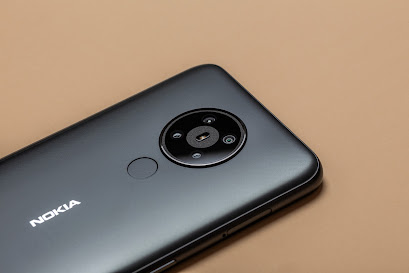History of Nokia:
Nokia's history can be traced back to 1865 when it was founded as a pulp mill in the small town of Tampere, Finland. The company eventually expanded into other areas, including electricity generation and rubber production. In the 1960s, Nokia entered the electronics industry, starting with the production of television sets. By the 1980s, Nokia had become a leader in the mobile phone industry, producing some of the first handheld phones. In the 1990s, Nokia introduced popular models such as the 2110 and the 3210. Despite early successes, Nokia faced challenges in the 2000s as competition from Apple and Android intensified. In 2014, Nokia sold its mobile phone business to Microsoft, marking the end of an era for the company.
Nokia's impact on the mobile phone industry:
Nokia's impact on the mobile phone industry is difficult to overstate. The company's early phones, such as the 2110, were among the first truly handheld phones and helped to popularize mobile phones around the world. Nokia's phones were known for their durability and long battery life, and models such as the 3310 became cultural icons. Nokia also introduced a number of innovative features, such as interchangeable covers and built-in cameras. However, by the mid-2000s, Nokia was struggling to keep up with changing trends in the mobile phone industry, particularly the rise of smartphones. Despite efforts to develop its own smartphone platform (the ill-fated Symbian), Nokia ultimately lost ground to Apple's iPhone and Android devices.
Today, Nokia is focused on 5G technology and other telecommunications infrastructure. The company has partnerships with a number of major telecommunications providers around the world and is playing a key role in the development of 5G networks. Nokia has also expanded into other areas, including consumer electronics and software. However, the company faces significant challenges as it tries to regain its footing in a rapidly changing industry. Nokia is competing against other major players, including Huawei and Ericsson, and must contend with geopolitical tensions and other obstacles. Nevertheless, Nokia's history of innovation and its deep expertise in telecommunications make it an important player in the industry, and it is likely to play a key role in shaping the future of mobile technology.
Current state of Nokia:
Nokia's current focus is on 5G technology and other telecommunications infrastructure. The company has partnerships with major telecommunications providers around the world, including AT&T, Verizon, and T-Mobile in the US. Nokia is working to develop and implement 5G networks, which promise faster data speeds, lower latency, and other benefits. In addition to telecommunications infrastructure, Nokia has also expanded into other areas such as consumer electronics and software. For example, the company has introduced a range of health and wellness products, including smartwatches and blood pressure monitors.
Nokia faces significant challenges in its current state. The company must contend with intense competition in the telecommunications industry, including from other major players such as Huawei and Ericsson. In addition, Nokia has faced geopolitical challenges related to its operations in China and elsewhere. The company has also struggled to generate consistent revenue and profits, although it has shown signs of improvement in recent years. Despite these challenges, Nokia remains an important player in the telecommunications industry, and its expertise in 5G technology and other areas make it a key player in shaping the future of telecommunications.
Nokia's future prospects:
Nokia's future prospects are closely tied to the development of 5G technology and other emerging areas in the telecommunications industry. The company has made significant investments in 5G and is well-positioned to benefit from the widespread adoption of the technology. Nokia is also exploring other areas of opportunity, including the Internet of Things (IoT) and other emerging technologies. The company's expertise in telecommunications and its long history of innovation give it an advantage in these areas.
However, Nokia faces significant challenges as it tries to regain its footing in a rapidly changing industry. The company must compete against other major players, including Huawei and Ericsson, and must navigate geopolitical tensions and other obstacles. In addition, Nokia must continue to innovate and develop new products and services to stay competitive in the market. Despite these challenges, Nokia's strong brand and deep expertise in telecommunications give it a solid foundation for future growth. If the company can successfully navigate the current landscape and continue to innovate, it is likely to play a key role in shaping the future of mobile technology and other emerging areas.










